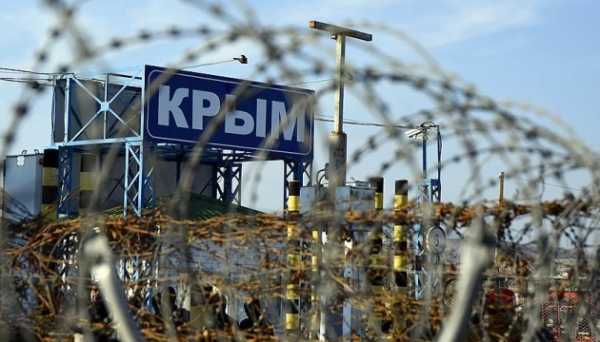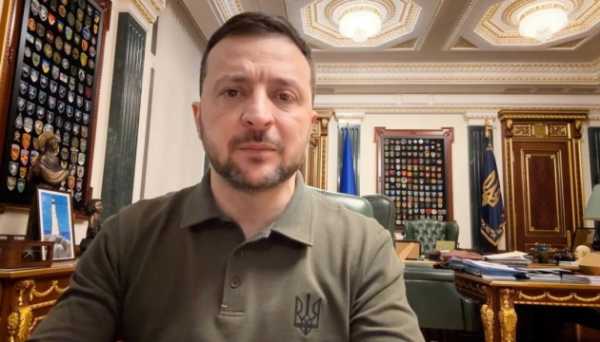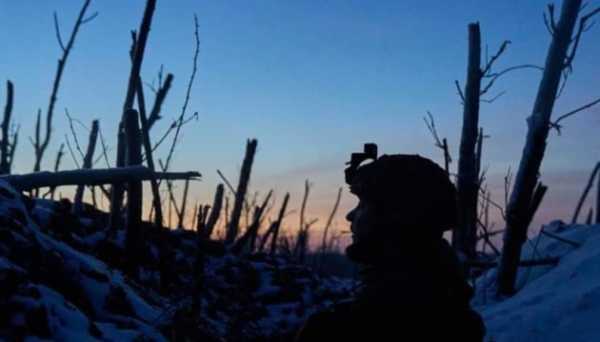Zolote residents in Donbas: We’re caught in-between warring sides: “Bang!” – a shell is flying over our heads. We constantly wonder which “bang” will eventually hit us
Early last week, someone purposefully dispersed panic in social networks, claiming that amid intensified shelling in Donbas, the Ukrainian Army retreated from its defense positions, and the town of Zolote “surrendered to separatists”. To dispel these rumors, UNIAN visited Zolote and talked with the locals.
From the capital, it seems that due to increased shelling, life in the front-line villages of Luhansk region has stopped altogether. Six years of war could turn the mining towns in the Anti-terrorist operation zone into something resembling Prypiat near Chornobyl. But, speaking of Zolote, the town that hit world news past week amid the latest escalation, a bus runs there several times a day. Shops, a school, and a kindergarten continue operating there without interruptions. Actually, it was a spike of flu rather than shelling got classes suspended for some time. UNIAN spoke with those who don’t want or cannot leave their homes.
“Our cows made it past all mines”
“Our fields have been massively mined. There is only a small, relatively safe, field. And it seems that cattle should wander around indiscriminately, but recently our cows made it past all mines, four rows of them, never stepping on any… Booby traps are more difficult to spot though. Two years ago, our shepherd blew up on one of them. He survived but sustained serious injuries. Just yesterday, one of the cows was calving and went to look for a quiet place. I followed her! Caught up with her, looked around, and then I got chill on my back. I understand that on one side there’s machine guns and on the other side, there’s machine guns, too. I turned back and was met with machine guns: ‘What were you doing there?’ What was I doing there… I live here!’ says Vitaliy, a farmer from Katerynivka, which is located in the “gray zone”, on the outskirts of Zolote.
The man says that he didn’t feel the radical changes after the troops’ withdrawal: “I was sleeping about four days ago, and here comes ‘bang’. It feels like you were hit in the temple amid a fistfight. I woke up, and fragments were hitting the roof… We are in-between the warring sides. ‘Bang!’ – a shell is flying over our heads. We constantly wonder which ‘bang’ will eventually hit us We never undress, we sleep dressed. At the exit from the room there’s a purse with documents to quickly grab before diving into the basement.”
Vitaliy and his wife live in a neighboring house, which was destroyed by a mine.
“That morning I went out to the cows, and then the 120s started hitting. I’m running home, thinking: ‘Let it be not our home. My wife is there.’ I saw that the corner of our house destroyed by a mine, my heart fell. I almost lost consciousness, and then the refrigerator rattled among the debris. I thought: ‘But maybe she survived?’ I began to rise, and here my wife fell out of the window, wearing just underwear and slippers,” Vitaliy recalls. “it was a miracle she survived. And yesterday she started the conversation again: ‘Why do we need all this!? Let’s get over it! We’ll go to our relatives, rent an apartment, find a job there.”
“What are my options?”
Vitaliy admits that he himself more than once thought about moving from the area. “But what are my options? Sell a car, a house, and a tractor for a penny? Throw it all away? Not sure if I can buy all this in a new location. I used to work in other places, I know how it is, to work 12hour shifts, and I saw the attitude: ‘We will fine you for this or that.’ No prospects are seen there, you will not become a boss, partner. You will either ‘dig’ or ‘not dig’. I better stay here but remain a free man,” the man argues.
According to him, it is becoming more and more difficult to do farming. Twenty tonnes of hay burned down after shelling. There are fewer buyers on the market due to delayed salaries at mines. Traders try to buy up beef for a penny.
“Traders from Severodonetsk, Lysychansk dictate their conditions. I come to the market, look at their prices, and I understand that they gave me UAH 7,000 for a bull, but then they will sell it for UAH 24,000-28,000. But there are no refrigerators to store carcasses. You have to sell, otherwise meat will rot,” Vitaliy admits.
He says that the common grief didn’t bring Luhansk region’s people together. On the contrary, in Zolote, fights would break out every now and then on the slightest pretext. For example, due to the fact that “humanitarian aid” is not distributed among everyone (they look at the size of the pension, etc.).
“The neighbor once shouted at me: ‘Don’t graze your cows near my garden!’ ‘But there are mines!’ ‘I don’t care’. People started hating each other,” says Vitaliy.
However, UNIAN’s interlocutors spoke not only about quarrels, but also mutual assistance. Last spring, the mine hit the house of pensioner Mykhailo Bykov from Zolote-1.
He says that the neighbors rushed to help, someone got the watering hose and put out the fire before the firemen arrived. As a result, the house had to be seriously repaired. Not only the authorities and volunteers helped with the money for the new roof, but also the neighbors raised some money, too.
“It’s better to die in a shelling, but in our own home”
By the way, the Bykov family left Zolote in 2014. They had to go back because they failed to find a job – and find themselves. The story is typical.
“Many old people would tell the children after being moved to another place: Take us back! It’s better to die in a shelling, but in our own home. Six years have passed, and they are still there. Had they been living in another city, they could’ve really burned out of longing,” the locals say.
On the other hand, chronic diseases are aggravated due to stress among older people, life in half-dark houses destroys eyesight, while raw cellars, where people hide from shelling, don’t add health either. In the streets of Zolote, UNIAN met a pensioner who admitted she had to walk from a hospital in nearby Horsky. She complained that she was ready to spend an hour and a half on the walking trip, rather than take the bus, simply to save money.
“I had to give UAH 15,000 for a surgery on my eyes. Where can I get this money? My daughter left, she rents an apartment so she needs money too… She has been saving, penny by penny, and still got into debt,” the woman says.
According to Larysa Hrytsenko, head of the Prolisok humanitarian center in Zolote, health problems among locals do not depend on age. Not only old people, but also young people and children get sick. “Our pediatrician died of old age last year, and no one can be found to replace him. What young specialist (any specialist) will go to work at the demarcation line? There are many issues. Our regional hospital is now scattered across three different towns. Imagine what it is like to travel from one to another?” she says.
However, healthcare is only one of many sore points. “There are issues with transport, trips to our remote villages. Many were unable to buy coal, firewood (you can’t go out to the forest to log any as the area is heavily mined) so people struggled through the winter. Our salaries are being delayed at our mines, and they are saying that they will be eventually shut altogether. But these are town-forming enterprises. Where are miners supposed to seek jobs?” notes Larisa Hrytsenko.
There is a legend about Zolote [Golden] telling that the town received its name from the phrase “golden bottom”. In Soviet times, several mines and a gold mine worked here, salaries were high, but since the beginning of the 1990s, life had been slowly fading.
After 2014, the town of Zolote emptied by about a third, while in the neighboring villages about a fifth of the inhabitants remained. And now it’s time that’s been destroying the empty streets – the ones that had not yet been destroyed by mines.
However, the stores in the town center have goods in them. Bread was brought even during the recent shelling. Locals tell us about entrepreneurs who are willing to take a chance and start a business at the front line. An example was the recently opened Nova Poshta postal office in Zolote (its opening was speeded up by a grant provided by the International Committee of the Red Cross). But so far, the nearest pizzeria is in the neighboring town, while the nearest movie theater is an hour drive to the district center. Therefore, it is not surprising that the local residents’ favorite pastime is to turn on their TVs and curse politicians.
“There is a lot of black color in children’s drawings”
Even in the remote Zolote-3, where about 3,000 used to live, now there’s only 300-400 of them left. You can rarely see people in the streets, and gaping windows in local homes remind of empty eye sockets, but life continues there. The place doesn’t look completely abandoned: most of the window frames are covered with film, while some residents even decided to install new windows to replace shattered ones, and a school operates for a dozen and a half students.
“In some classes it’s two or three students, in some it’s one. It would be possible to take the children to another town’s school, but parents worry. Who knows what can happen along the way? Here we can protect them. There was no strong shelling for a long time, but it sometimes happened that we just stood there, hugging our kids, hiding behind a load-bearing wall,” says Antonina Belyaeva, a local teacher.
It is worth noting that, in the understanding of local residents, “heavy shelling” means shelling where heavy weapons are employed, while 82 mm mortars don’t even count. Moreover, people here pay practically no attention to automatic rifle bursts.
Some of the children from Zolote-3 live in low-income families, where there is no money to move to another city: “there are those who have nowhere to go.” But these six years of the war could not but affect the psyche of these kids.
“Of course, the war affected the children. There is a lot of black color in their drawings. But when asked to draw a safe place, there were many drawings of our school,” says Antonina Belyaeva.
Psychologists say that war trauma can resurface much later.
“A few years ago, in Starobelsk, where many IDPs have settled, they decided to do fireworks on May 9. They fired a salvo at the main square, as a result, half of the locals fell to the ground, as amid shelling. Both adults and children ducked. It worked like a ‘trigger’ to them, after which some got nightmares,” psychologists from Lysychansk say.
As UNIAN spoke to children, they admitted that they were dreaming not only of peace, but also of enrolling in a university. Teenagers want to move to another city and understand that to this end, they need to study well. Both adults and children say pretty much one thing – that they have “no future” and “no prospects” here…
There is little hope that the situation will improve, but it still remains. “We’re used to such kind of life. I saw a headline on the internet saying ‘Zolote – a ghost town’, I looked at the photo and only after that did I think that it was indeed the case,” says Antonina Belyaeva. “It’s probably more apparent from the outside. We no longer notice the shelling or destroyed homes. We learned to live today instead of building far-reaching plans. And we believe that one day, everything will be fine again.”
Vlad Abramov
Source: www.unian.info



